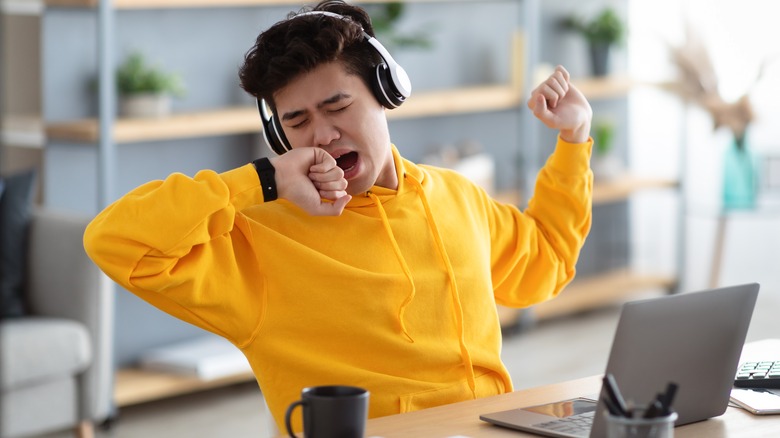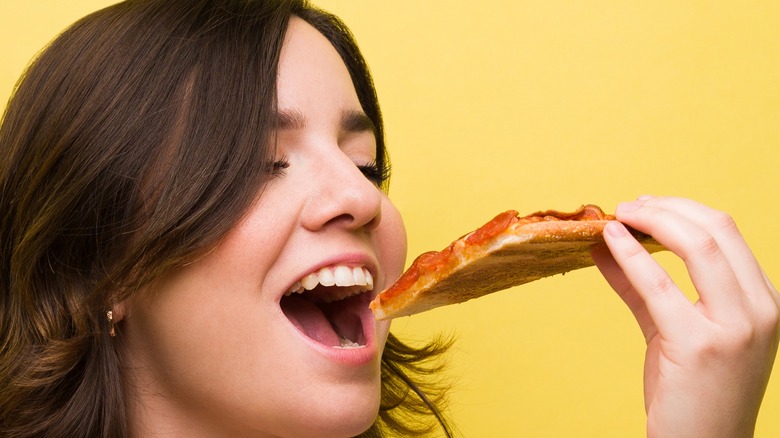Subtle Ways Your Body Is Telling You To Get More Sleep
Sleep hygiene is important — we've heard this and know that getting the recommended amount of sleep is important for well-being. For the average adult, that number ranges between 7 and 9 hours, per WebMD. Even with your sleep between those numbers, how do you know if you've been getting enough sleep for your body? It's pretty common to associate a big yawn with getting sleepy, but there are subtle cues your body uses to tell you that you need more sleep.
According to MindBodyGreen, if you're falling asleep as soon as you hit the pillow, you need more sleep. In general, falling asleep within 5-10 minutes is an optimal window, as this indicates you're tired, but not exhausted (per MindBodyGreen). Additionally, if you find yourself snapping or in a bad mood, this is a sign you're tired (via US News and World Report). "Therefore, sleep-deprived patients can think less positively, have less impulse control, suffer with bad moods and show less empathy towards others," Dr. Camilo Ruiz, spokesperson for the American Academy of Sleep Medicine and osteopathic doctor, tells US News and World Report. This lack of empathy can also show in how you treat yourself, with negative thought patterns being hard to shake (via MindBodyGreen).
External cues that suggest you need more sleep
Excessive thirst is a big indicator that you may need more sleep, points out MindBodyGreen. Researchers who conducted a 2018 study published in Sleep found that participants with a shorter sleep duration had higher odds of being dehydrated relative to participants who slept 8 hours. While researchers are unsure of why this bizarre side effect happens, it's clear that fluid regulation becomes more challenging when you're tired.
However, reaching for a glass of water isn't the only craving you may have. "Not getting enough sleep can also lead to poor eating decisions, by messing with your hunger hormones," points out board-certified internist Dr. Vincent Pedre to MindBodyGreen. Expect to be reaching for high caloric foods like pizza, chips, or cookies if you're feeling sleep deprived. Researchers explain that the lack of sleep diminishes activity in the frontal cortex. It also increases responsivity in the amygdala, triggering a person to eat foods that lead to weight gain (via Nature Communications).
Lastly, a low sex drive may be a subtle sign that you need more sleep, per US News and World Report. Not only does it lower libido, but it also lowers the function of the reproductive system (male and female), making it harder to conceive (per US News and World Report). Keep in mind that monitoring your sleep can potentially help.


